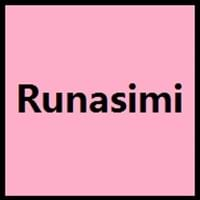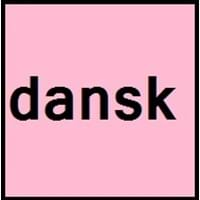Quechua and Danish
Countries
Argentina, Bolivia, Chile, Colombia, Ecuador, Peru
Denmark, European Union, Faroe Islands, Greenland, Nordic Council
National Language
Bolivia, Ecuador, Peru
Denmark, Faroe Islands, Germany, Greenland
Second Language
Not spoken in any of the countries
Not spoken in any of the countries
Speaking Continents
South America
Europe, North America, South America
Minority Language
Not spoken in any of the countries
Argentina, Brazil, Canada, Germany, Greenland, Norway, Sweden, United States of America
Regulated By
Not Available
Dansk Sprognævn (Danish Language Committee)
Interesting Facts
- One of the most widely spoken indigenous language in the America is Quechua.
- Quechua language has borrowed many words from Spanish.
- Danish, Norwegian and Swedish are mutually intelligible, that means if u learn Danish is almost like learning three languages in one.
- There are 9 vowels in Danish language, which can be pronounced in 16 different ways.
Similar To
Not Available
Norwegian and Swedish
Derived From
Not Available
Old Norse Language
Alphabets in
Quechua-Alphabets.jpg#200
Danish-Alphabets.jpg#200
Writing Direction
Not Available
Left-To-Right, Horizontal
Language Levels
Not Available
Hello
Rimaykullayki
Hallo
Thank You
Solpayki
Mange tak
How Are You?
Allillanchu
Hvordan har du det?
Good Night
Allin tuta
God nat
Good Evening
Wuynas nuchis
God aften
Good Afternoon
Wuynas tardis
God eftermiddag
Good Morning
Wuynus diyas
God morgen
Please
Not Available
Please
Sorry
Pampachaykuway
Undskyld!
I Love You
Kuyayki
Jeg elsker dig
Excuse Me
Pampachaway
Undskyld mig
Where They Speak
Peru
Sweden
Dialect 2
Huánuco
Jutlandic
Where They Speak
Peru
Denmark
How Many People Speak
Not Available
Dialect 3
Yaru
Bornholmsk
Where They Speak
Peru
Island of Bornholm
How Many People Speak
Not Available
Speaking Population
Not Available
Native Name
Qhichwa
dansk
Alternative Names
North La Paz Quechua
Dansk, Rigsdansk
French Name
quechua
danois
German Name
Quechua-Sprache
Dänisch
Pronunciation
Not Available
[d̥ænˀsɡ̊]
Ethnicity
Quechua
Danish people or Danes
Origin
16th Century
c. 1100 AD
Language Family
Quechumaran Family
Indo-European Family
Subgroup
Andean Equatorial
Not Available
Branch
Not Available
Not Available
Early Forms
No early forms
Old Danish, Early Modern Danish
Standard Forms
Quechua
Rigsdansk
Signed Forms
Not Available
Signed Danish
Scope
Macrolanguage
Individual
ISO 639 6
Not Available
Not Available
Glottocode
quec1387
dani1284
Linguasphere
No data Available
5 2-AAA-bf & -ca to -cj
Language Type
Living
Living
Language Linguistic Typology
Not Available
Subject-Verb-Object
Language Morphological Typology
Agglutinative, Synthetic
Fusional
All Quechua and Danish Dialects
Most languages have dialects where each dialect differ from other dialect with respect to grammar and vocabulary. Here you will get to know all Quechua and Danish dialects. Various dialects of Quechua and Danish language differ in their pronunciations and words. Dialects of Quechua are spoken in different Quechua Speaking Countries whereas Danish Dialects are spoken in different Danish speaking countries. Also the number of people speaking Quechua vs Danish Dialects varies from few thousands to many millions. Some of the Quechua dialects include: Ancash, Huánuco. Danish dialects include: Scanian , Jutlandic. Also learn about dialects in South American Languages and North American Languages.
Quechua and Danish Speaking population
Quechua and Danish speaking population is one of the factors based on which Quechua and Danish languages can be compared. The total count of Quechua and Danish Speaking population in percentage is also given. The percentage of people speaking Quechua language is 0.13 % whereas the percentage of people speaking Danish language is Not Available. When we compare the speaking population of any two languages we get to know which of two languages is more popular. Find more details about how many people speak Quechua and Danish on Quechua vs Danish where you will get native speakers, speaking population in percentage and native names.
Quechua and Danish Language Codes
Quechua and Danish language codes are used in those applications where using language names are tedious. Quechua and Danish Language Codes include all the international language codes, glottocodes and linguasphere.





